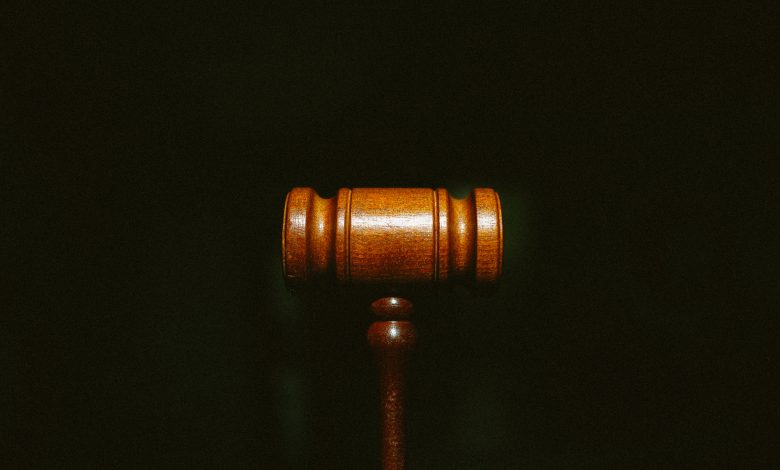No Contest Plea v.s. Guilty Plea: What’s the Difference?

It may seem foolish to ever not plead innocent to a crime, but some lawyers will advise you that a plea bargain may be more beneficial for a defendant’s specific case. When taking a plea deal, a defendant is making an agreement with the law, usually involving not fighting their case and avoiding a more severe punishment. The exact specifics on what type of plea bargain the defendant takes depend on whether the defendant pleads no contest or guilty.
What Is a Plea Bargain?
When pursuing a case where the prosecutor feels that they have a strong case against the defendant, they may make a deal with the defendant that involves them either dropping one or multiple charges, changing the charge to one less severe, or reducing their sentence, fine, or other penalties. However, this deal usually includes the defendant either admitting their guilt or maintaining their innocence but agreeing not to take their case to court. Prosecution likes making plea deals because they can avoid long court proceedings and often get information and other valuable assistance from the defendant. Likewise, a defendant may want to avoid a trial they feel they may lose, or they may even want to lessen their lawyer fees. Additionally, in a case where bail cannot be made, the defendant may take a plea bargain to avoid sitting in jail while awaiting their trial. It’s also important to note that prosecution can only recommend that the judge or courts accept the plea bargain; they still have the option to refuse the plea bargain.
No Contest Plea
A no contest plea is often used in this scenario: the defendant knows they are innocent, but their case isn’t looking good, and they can avoid a more severe charge and penalty by taking a plea bargain than if they were to fight their case in court and potentially lose. Another benefit of pleading no contest is that your admission of guilt can’t be used in a civil criminal case. For example, if the defendant is involved in an assault case where the victim may have grounds to sue them, the victim cannot point to a criminal admission of guilt to the assault – in most cases. It can also allow the defendant to keep their case from reaching the public eye or drawing more attention to it through a long court proceeding.
Guilty Plea
Alternatively, the defendant may also plea guilty in order to make an agreement with prosecution. This is essentially the same; however, they do admit their guilt in the commission of the crime. This may seem less than ideal, but in some serious cases or when the evidence is particularly strong, the prosecution may require pleading guilty in order to make the plea bargain. Although the defendant admits their guilt, it likely will lead to a less harsh sentence and the avoidance of a lengthy and expensive court case. A guilty plea does not have the same benefit in civil court as a no contest plea has.
Types of Plea Bargains
For both no contest and guilty plea bargains, plea bargains can be negotiated on four fronts; although, charge and count bargaining are the most common, and the others are generally discouraged from being used.
- Charge bargaining: This involves a reduction in the severity of the charge the defendant would receive if they were to take their case to court and potentially be found guilty.
- Count bargaining: Like charge bargaining, count bargaining involves the charge the defendant is facing, but in this case, the prosecution would drop one or multiple charges against the defendant for a guilty or no contest plea for one or more other charges.
- Sentence bargaining: If the negotiation involves a certain agreement involving the amount of incarceration time or other penalties the defendant would face in court, it’s called sentence bargaining. This typically involves the prosecution and the defendant agreeing on a sentence that the prosecution will suggest to the judge; however, this doesn’t guarantee the judge will make that ruling.
- Fact bargaining: This is an interesting one, as it involves a trade of facts in a sense. It means that the defendant will allow the prosecution to make claims of certain facts without having to provide the proper proof in return to them withholding certain other facts from evidence. For example, in a case where there are aggravating circumstances that would lead to a harsher sentence, the prosecution may agree to not include the facts surrounding the aggravating circumstances in return for the defendant pleading no contest or guilty to just the crime itself.

Your Rights Surrounding Plea Bargains
Within the Federal Rules of Criminal Procedure, the defendant’s rights regarding making a plea are outlined. First off, it describes what the defendant must be advised of in order to go plead guilty or no contest – or as they call it, nolo contendere. This includes:
- The defendant is able to appeal the court’s decision if that result is contrary to what was agreed upon when making the plea bargain with the prosecutor.
- If they win the appeal, they can withdraw their plea.
- The defendant will go before the judge or court to have their plea accepted.
- They have the right to plead not guilty or even revoke their guilty plea had they already made a deal.
- They have the right to a jury trial.
- They have the right to an attorney or to be appointed one if they cannot afford one.
- They must be informed that they are waiving the right to a trial if they pursue a plea bargain.
- They must be informed of:
- their charges
- the maximum penalties associated with said charges
- the minimum punishment they can receive
- if they don’t have the right to appeal for some reason
- that, if they are not a citizen, they can be deported
- The judge must ensure that the plea is voluntary.
- The judge must verify that they are receiving the appropriate charges.
When it comes to your rights with a judge, there are several aspects that apply. For one, a judge should consider several things when determining whether to accept or reject a plea agreement:
- the crime the defendant is charged with
- the defendant’s criminal history
- the safety of the public
- aggravating circumstances
- the defendant’s character
- the defendant’s best interest
The judge then has several options; they can either accept the entire plea deal, reject the entire agreement, or choose certain parts to accept or reject. In the case of accepting only parts of the plea deal, the defendant has the right to revoke their admission of guilt or no contest and proceed to a trial. If they reject the whole agreement, in open court, they must tell the defendant that they are denying their plea bargain, give them the chance to withdraw their plea, and advise them that, if they do not revoke their guilty or nolo contendere plea, they may receive a worse charge and sentence than they had agreed upon with prosecution.
The defendant has several other opportunities to revoke their plea. They can always withdraw before the court accepts the bargain. However, once the court has accepted the bargain, they can only withdraw before the sentence is determined – but only if the final sentencing is different than agreed upon or if they can prove a “fair and just reason for requesting the withdrawal.” Once the plea deal has been sentenced, the only way to withdraw the plea is through direct appeal or collateral attack.

Pros and Cons of Plea Bargains
Plea bargains tend to be rather controversial, although heavily used throughout the criminal justice system. This is because, while there are many pros for some, there can also be major cons for others. This will greatly depend on whether you’re discussing the judge, prosecutor, or defendant.
Judge’s Pros and Cons
Quite simply, this alleviates a lot of work from the judge. That’s just one more court case that they don’t have to sit through a trial for. This can sometimes allow the prosecution to filter out the lower level crimes and allow the judges to focus on more severe crimes that need an in-depth trial. They may also want to avoid overcrowding the jail, as many defendants may be there awaiting trial. The real con for a judge is the chance of sentencing an innocent defendant that accepted a plea deal out of necessity.
Prosecution’s Pros and Cons
Again, this is a chance to help make the prosecution’s job easier. Not only do they avoid a criminal trial, they can use the defendant in order to get information to pursue charges on other individuals. This is often the case when handling a defendant charged with a less severe crime who can help them convict someone with much higher stakes. Also, if a prosecutor is looking to get a high rate of convictions, this is a way to ensure that many of their cases end in a successful prosecution.
This can become a con for prosecutors, however, when they feel that the judge has delivered a lighter sentence than they agreed upon. Additionally, they can receive pressure and even attacks from the public when they let a criminal off with a lesser charge or sentence.
Defendant’s Pros and Cons
These pros and cons for a defendant can be much more detrimental and vary greatly. The biggest pro would be if a defendant is actually guilty or would likely be found guilty in a trial, as they can make it out with a much lighter conviction than if they were to proceed with a trial and receive the full sentence from the court. Another case, again where the defendant is guilty, is the chance to avoid prosecution digging further into the crime to find further incriminating evidence, which may help them avoid more severe penalties. Regardless of guilt or innocence, this can also allow the defendant to avoid jail time while awaiting their trial. They may also have the benefit of not having their case be in the public, which may cause complications in their employment or personal life. Additionally, this may be the right choice for a defendant facing much more severe charges if convicted of their current charge. For example, someone convicted of a sex crime may be able to avoid registering as a sex offender or possibly even the death sentence in the most severe circumstances.
However, there are obviously some major cons, especially if the defendant is actually innocent, as there are cases where a defendant may accept a plea bargain even if they aren’t guilty. As mentioned before, one of these circumstances is when they don’t want to wait in jail, and unfortunately, innocent people may be forced to do just that because they can’t afford bail. In this case, they may feel the pressure to just make a plea deal to get out of jail, regardless of the guilty sentence. Other scenarios may include if an overworked defense attorney illy advises that they take a plea bargain just to avoid the extra work of the case and proving the defendant’s innocence. Defendants who have these attorneys or those who are low cost or court appointed may feel they won’t get or may actually not receive the same quality of defense as someone who can afford the best lawyers, which may lead low income defendants to be more likely to make a deal simply because their chances of winning their case are not great. Plus, the defendant faces the simple con of not being able to plead their case to a judge or jury, as it may be more risky than a more certain, agreed upon sentencing.

Breaking Plea Agreements
As there are three individuals involved in a plea bargain, the defendant, the prosecution, and the judge, there are three different people that can breach a plea deal. The manner in which they do it will vary, however. Depending on who breaks the agreement, the defendant will have their guilty plea withdrawn or will lose the benefits they received through the deal.
Judge Breaking Plea Agreement
This will most likely occur during the acceptance and sentencing phase of the plea bargain. As outlined above, there are several things that a judge is responsible for informing the defendant of in order for the defendant to make the best decision for their case. Failing to advise them on the mandatory penalties associated with their crime, that their actions didn’t actually constitute their charge, or their other rights can result in the plea bargain being violated. Also, this can involve the judge agreeing to the sentencing that was described in the plea agreement and then going back on the deal and assigning a different sentence, as well as not allowing the defendant to withdraw from the plea deal if they doesn’t approve the sentence agreed upon with the prosecution.
Prosecutor Breaking Plea Agreement
The biggest way a prosecutor can break a plea deal is by not following through with the promises they made. The agreed upon conditions must be fulfilled on both sides up until the judge’s decision. They can also breach the deal if they do not inform the defendant of their rights and what waiving those rights mean for them. The defendant must be aware of what they’re up against and exactly what the prosecution is offering.
Defendant Breaking Plea Agreement
Obviously not fulfilling the sentence they were given, whether it be avoiding incarceration, not attending community service or other court ordered activities, not registering as a sex offender, or any other number of penalties that may be assigned in their plea deal, is considered a breach of the agreement. Additionally, in the case where a defendant is providing intel or agrees to be a witness, they must provide the agreed upon, true statements when needed. Committing perjury at any point in the plea agreement can violate the deal as well.

Making a Plea Bargain
The decision to accept a plea bargain is a serious one that should be discussed thoroughly with your attorney. There are cases where a plea bargain is certainly in the defendant’s best interest, but it’s important to be sure that you’re not accepting a deal for the wrong reasons or that you’re being pressured by your lawyer or the prosecution. Ensure that you thoroughly understand your case, your strengths, your risks, and the minimum and maximum charges you face if found guilty in court. Overall, pleading guilty or no contest can result in a much more favorable outcome for all involved or the prosecution of an innocent defendant.



